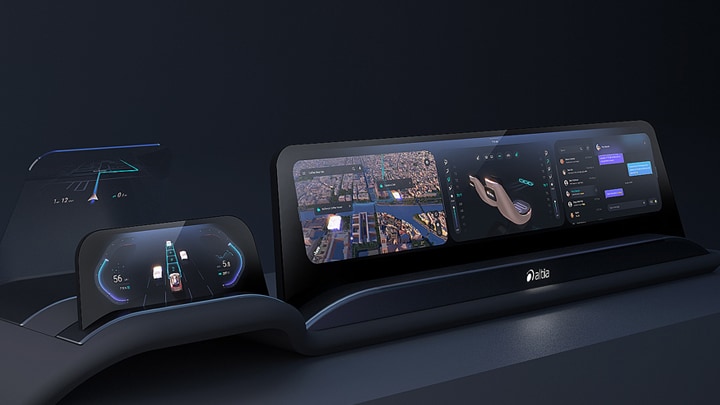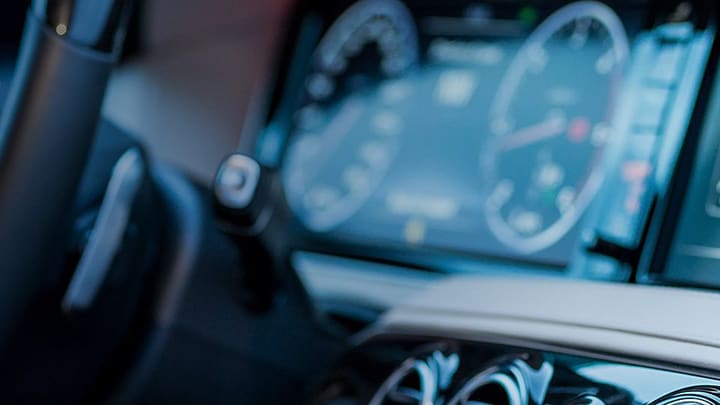The past years have seen user experience become increasingly integral to innovations around and inside cars. One key aspect
included in this trend is the charging of mobile phones. Although this feature has been present for some time, it just got a
much-needed makeover with the integration of
Qi wireless charging and
Near Field Communication (NFC).
Both Qi and NFC operate using inductive coupling. In this new setup in cars, Qi enables the charging of mobile phones and NFC,
wireless communication over a short distance. You just have to put your phone down onto the charger and it immediately
establishes connectivity to exchange data via NFC and to charge via Qi.
All the Convenience and Efficiency in One Spot
Qi charging and NFC complement each other to address a new generation of automotive use cases. Thus, it was expected at some
point that both would share the same location in the middle console of cars. The benefits of having them in one spot are quite
obvious. It is all about the user convenience, driver comfort and safety of NFC cards.
The smartphone needs to be placed in one spot to perform authorization for engine start via NFC, according to the CCC scheme,
and to be charged via the Qi subsystem. In addition, the NFC is there to detect smart cards, tags and key fobs—and prevent their
destruction by the active Qi field. The risk of such an unwanted event increased in recent years due to the Qi standard moving
from 5W to 15W+ charging power.
With a combined Qi and NFC solution, there is no need to place the phone in two different locations in the car. Just one
electronic control unit (ECU) manages combined Wi-Fi® and Bluetooth®, saving space and integration
efforts in the car. Since Bluetooth and Wi-fi require authentication to connect phones to car electronics, Wi-Fi can also
automatically connect the phone via out-of-band pairing to the car’s Wi-fi and Bluetooth networks. This is possible without
going through any specific configuration process.
NFC is a game changer for multiple automotive use cases. Reach out to the
automotive NFC group to
discover more.
Top-Notch RF Performance for Seamless Integration in the Middle Console
NFC and Qi charging require inductive antennas and coils to transfer data and sufficient energy using the same surface or
volume, given the changes the new Qi2 standard with magnetic alignment is bringing. This definitively presents some technical
hurdles in their integration due to the extra complexity from materials and limited space, which gives no room for communication
or charging blind spots.
NFC devices that offer top-notch radio frequency (RF) performance are crucial to overcoming those integration challenges and
ensuring reliable communication with the phones and detuned cards across full-charging surfaces. It is important to distinguish
between the phones emulating cards and the cards themselves. If the phone emulates only a Type A or B technology, it is
indistinguishable on the protocol level from a card of the same type. For this reason, there is a clear need for extra
capabilities to extend the protocol-based distinguishing, with measurements of analog properties of the cards and the phones.
NXP is Providing the Right Enablement
The NCx3321 and
MWCT2xxx family are the latest products from NXP
offering excellent RF capabilities and a unique feature set optimized for optimal performance in the middle console
applications. By offering high-RF output power combined with dynamic power control and excellent sensitivity, NCx3321 is the
right choice for automotive customers requesting extended operating volume. The innovative Analog Sense feature for
distinguishing smart cards from smartphones is a real game changer in enabling effective card protection for Qi chargers.
On top of the very compelling hardware, NXP also offers the Automotive NFC Library with asynchronous API and a full feature set
according to the NFC Forum CR13/CCC specification. This software is also available as AUTOSAR® Complex Device Driver to speed up
the development of automotive NFC applications. These unique features and the complete hardware and software offering, make
NCx3321 suitable for use in a wide range of automotive applications involving security (car access), safety (NFC card
protection) and convenience (Bluetooth LE / Wi-Fi Pairing).




